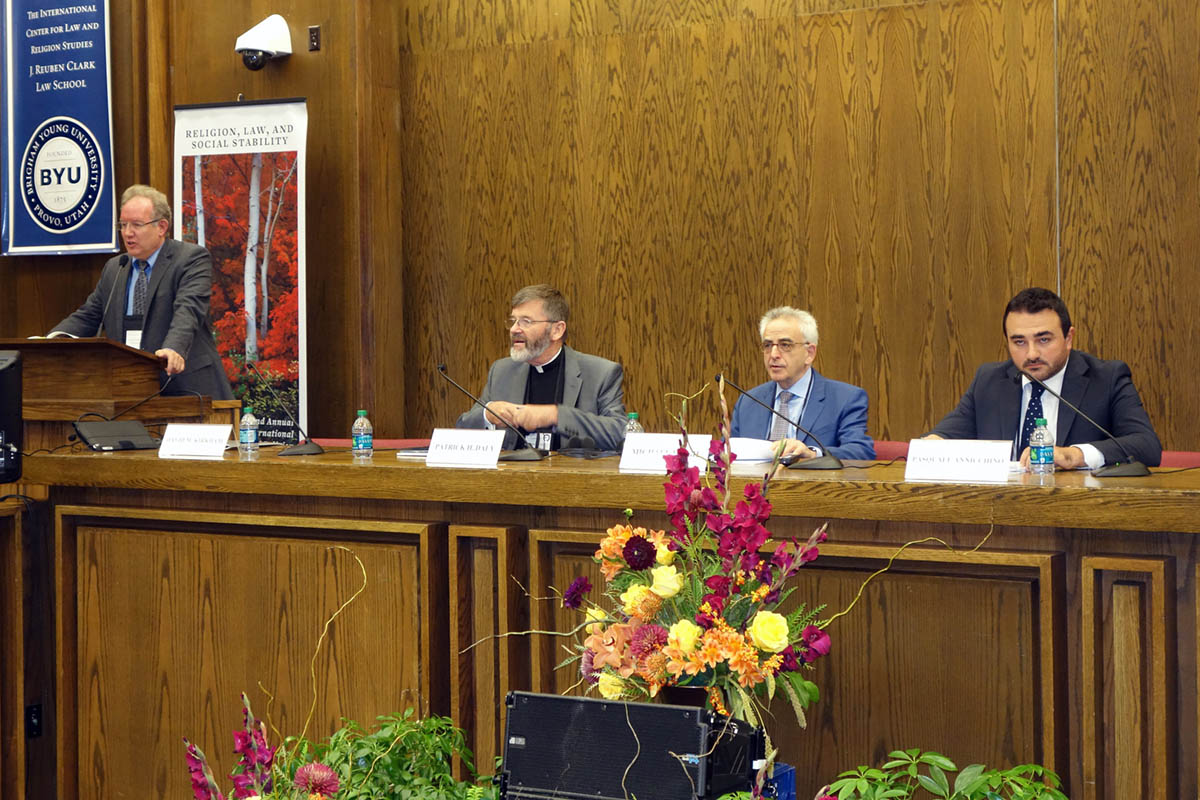Symposium 2015: Religion and Foreign Policy

Reported by Abby McKeon
The session opened with the moderator, David M. Kirkham, Academic Director, Brigham Young University London Centre, pointing out that in recent years, there has been a widespread reevaluation of religion and foreign policy with the hope that this will result in religion being used as a force for good in the relations of foreign nations.200
Patrick H. Daly, General Secretary from the Commission of the Bishops’ Conferences of the European Community, presented on the effect of religion in European Union (EU) foreign policy. The EU is based on fundamental Christian principles of forgiving the past and working together. However, in recent years, the EU has become ambivalent to the religious ideals that inspired it and it is no longer polite to share your religious convictions. Because many view the EU as a secular project, steps have been taken to move away from aligning with a single religion. This move away from having a strong Christian image coupled with the varying degrees of respect for religion that may or may not exist in each of the countries in the EU has presented some difficulties for those attempting to reconcile foreign policy and religion. However, instructions and guidelines have been dispersed to participating EU countries in an attempt to secure respect for religion throughout Europe.
Sir Michael Leigh, Senior Fellow at the German Marshall Fund of the United States, began by pointing out that he has also noticed, and been struck by, the prominence of the discussion of religion and foreign policy around the world. Many Western countries have even begun appointing people to promote religious freedom. One explanation for the expanding dialogue is the increasing prominence of religious issues and the fear of increased clashes between cultures and countries concerning these religious issues. Right now, executive authorities are expected to make proposals to withhold aid and resources to countries that violate certain freedoms, but the lack of objectivity in making these determinations leads to inconsistent results. Sir Michael Leigh proposes that a new approach to religion and foreign policy be adopted that focuses on main threats to religious freedom and does not rely on such a bureaucratic approach. In developing a new approach, one tension to keep in mind is whether religious freedom should be mainstreamed into all efforts or be the focus of a smaller task force.
Pasquale Annicchino, Fellow at the Robert Schuman Centre for Advanced Studies, European University Institute, presented about his research on the basic methodological issue of distinguishing between two areas of religious freedom: (1) religion and foreign policy, and (2) religious freedom and international status. He focused on the growing interest in the second distinction. He went on to point out five issues relating to religious freedom and international status. Among these five issues, he highlighted (1) the global conversation and struggle that is international religious freedom, (2) the need to expand political platforms that shape religious freedom, and (3) the risk of disappearance that international religious freedom faces. Mr. Annicchino has found that there is a risk of disappearance because of the lack of resources, the communicative block that exists between believers and non-believers, and the clashing of rights between religious freedom and other rights believed to be fundamental.